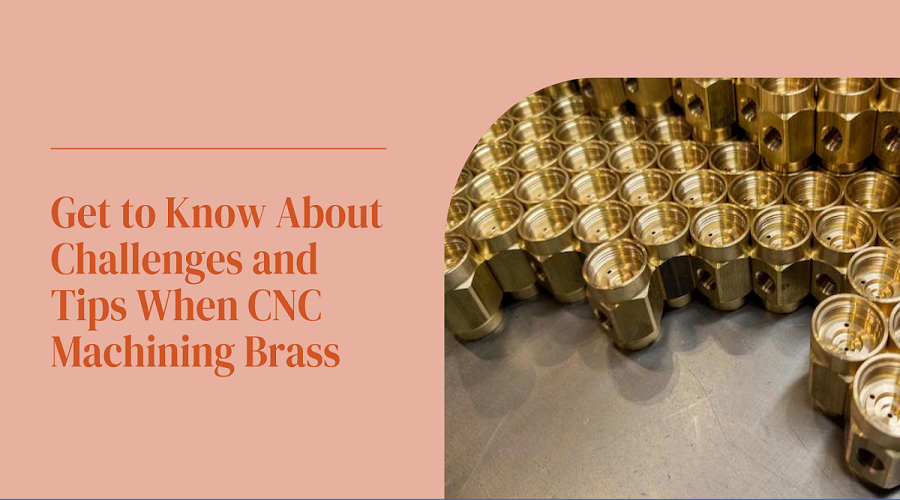
CNC machining is a process that uses computers to control the movement of machines that cut or shape metal or other materials. The process can be used to create a wide variety of products, from medical implants to car parts. CNC machining is compatible with a wide range of materials, including the reddish hue metal, brass. Brass, which is a copper alloy made of copper and zinc, is machined for several decorative applications owing to its aesthetic appeal and resistance to tarnishing. However, there are a few challenges that come with CNC machining brass. This post discusses a few challenges involved in brass CNC machining. The post also discusses a few tips to machine brass effectively.
Why the Use of Brass is So Common?
The presence of zinc in brass greatly enhances its machinability, making it one of the most popular materials to machine. It is a material that is known for its high resistance to wear and tear. Brass also has a relatively low melting point, which makes it easy to work with. In addition, brass is non-toxic metal and does not corrode easily. It can be readily plated or finished in a number of ways, making it an attractive choice for many industrial applications.
Challenges Involved in CNC Machining Brass
Brass is a metal that poses several challenges during CNC machining as its properties change significantly depending on the alloy. A few of the challenges that machinists face while working with the metal include:
- Brass is a softer metal than steel, so it can be more easily damaged by tools and cutters. This means that the feeds and speeds need to be adjusted to account for the difference in hardness. Hence, operators need to be very precise when machining brass, and take their time to ensure a high-quality product.
- Machining unleaded brass or Brass 360 can be challenging due to the hardness and power required to cut through the material. Even if you are using advanced machine set up, you need to maintain it in proper condition. Multi-diameter characteristics and single pointing is the best option for achieving the best results with CNC machining brass.
- Brass grades produce a lot of swarf (a type of waste material) when machined, which can lead to clogging of cutting tools and machine parts. This needs to be cleaned up on a regular basis.
- In addition, brass is a good conductor of electricity, so static electricity can build up on the tooling and cause problems.
Tips to Ensure a Successful Machining of Brass
There are several factors that affect the machinability of brass. The most important are the chemical composition of the brass, the machining conditions, and the tooling used. In order to machine brass using a CNC machine, you need to set the correct parameters and use the correct tools. When machining brass, there are a few things to keep in mind to ensure effective and accurate results. Here are some tips:
- Be sure to keep an eye on the temperature of the tooling, and adjust your settings as necessary.
- Ensure to choose the right toolpath. The toolpath you choose will depend on the shape of the part you are machining and the type of brass used. The most common toolpaths for machining brass are pocketing, contouring, and profiling.
- Use the correct tooling, speeds and feeds. In general, slower speeds and feeds should be used when machining brass, as it is a softer metal.
- Use a sharp tool with a good edge while machining brass as it produces the best results.
- Brass alloys have different properties that can affect the machining process. Hence, understand the type and properties before starting with the machining processes.
- Different CNC machines have different capabilities, so it is important to select the right machine for the job. The speed and accuracy of the machine can affect the quality of the finished product. Make sure that your machine is properly calibrated and in good working condition.
Examples of Brass CNC Machined Parts
Some of the most common types of brass parts that are CNC machined include screws, nuts, bolts, and washers. A few more examples include:
- Jewelry
- Keys
- Latches
- Mounts
- Sockets
- Spacers
- Electrical connectors
- Fittings
If you are looking towards brass machined parts for your next project, make sure that you getting them done from experienced and ISO certified CNC machining service providers like Princeton Industrial Products, Inc. Experienced machinists at the firm own in-depth knowledge of materials they are machining, hence there would be minimal chances of defects and errors. Connect with the team at Princeton Industrial Products, Inc. today and get to know their capabilities in CNC machining brass.



